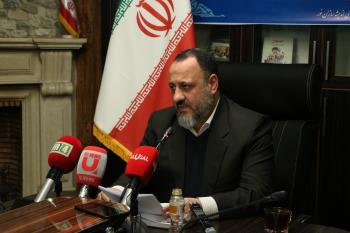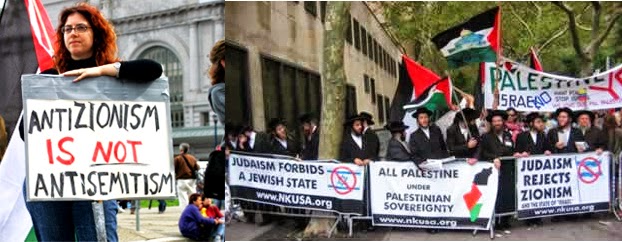Alwaght- The Israeli regime is trying to erase the line drawn between anti-Zionism and anti-Semitism, simply because hiding under the rock of racism is easier than confronting the world.
Demarcating the difference
Zionism can be defined as the ethno-nationalist and political movement of Jews that support the establishment of the Israeli regime as a purely Jewish state or homeland on Palestinian territory. Anti-Zionism has emerged as an opposition movement to the illegal occupation of Palestine and the backing it receives from Jews and non-Jews.
On the other hand, anti-Semitism refers to hatred directed at Jews for being Jews, basically for their ethnic and religious identity.

The Anti-Defamation League defines it as: “The belief or behavior hostile toward Jews just because they are Jewish. It may take the form of religious teachings that proclaim the inferiority of Jews, for instance, or political efforts to isolate, oppress, or otherwise injure them. It may also include prejudiced or stereotyped views about Jews.”
The line separating the two practices and ideologies is most clearly drawn through one main difference: that anti-Zionism is opposition to what Zionist Jews do and not who they are unlike what anti-Semitism comes down to.
Jewish anti-Zionism
In the face of attempts to link anti-Zionism to anti-Semitism, critics and anti-Zionism Jews have spoken up.

Ray Filar, an anti-Zionist Jew, published an article explaining his position in August 2014, during the Israeli war on Gaza. He recalled his visit to the Israeli regime as a journey to discover his identity and ultimately the truth about Zionism.
“This month, hundreds of thousands of people have demonstrated worldwide against the massacre in Gaza. Marching in London with the Jewish bloc has been a powerful experience. Under the banner ‘not in my name’, we show that Israel does not speak for all Jews,” he wrote.
Anti-Zionist Jewish movements that include The Jewish Labour Bund, Jews for Justice for Palestinians, Jewdas, Young Jewish Left and the International Jewish Anti-Zionist network have indeed raised their voices against Zionism. Does that make them anti-Semitic, self-loathing Jews? Clearly no.
Iranian Jews
Whenever the Israeli regime receives criticism for its crimes against humanity and continuing occupation of Palestine, it pulls the anti-Semitism card.
Furthermore, it distinctly accuses anti-Zionist countries, movements, and groups of being anti-Semite if they speak up against its existence and practices as an occupying state whose military kills in the name of Judaism.
For example, it is not unusual for Israelis to label Iran as anti-Semitic over its political and religious stances, knowing that the Islamic Republic is home to many Iranian Jews. In fact, the Israeli regime's arch-foe even respects its Jewish community.

The fact is that after the Israeli regime and Turkey, Iran is home to the largest Jewish population in the Middle East who is officially recognized as a religious minority, is allocated one seat in Parliament, and is recruited in the army.
Current Jewish MP Siamak Moreh Sedgh says that most Iranian Jews view Iran as their homeland where they enjoy the right to practice their religion freely. He also does not equate Judaism to Zionism and supports Tehran’s policies toward the Israeli regime. His remarks exemplify how being anti-Zionist is not the same as being anti-Semitic.

Why conflate?
In May, the Israeli Justice Minister, Ayelet Shaked, criticized European leaders for speaking against the Israeli regime and supporting the Boycott, Divestment, and Sanctions (BDS) movement.
“In the past, we saw European leaders speaking against the Jews. Now, we see them speaking against Israel. It is the same anti-Semitism of blood libels, spreading lies, distorting reality and brainwashing people into hating Israel and the Jews,” Shaked said, equating anti-Zionism with anti-Semitism.
However, she is not the only Israeli official to make such claims, obviously to rally support for Tel Aviv on the one hand; and on the other, to demonize supporters of the Palestinian cause by trying to paint a reversed picture of who is being persecuted.
According to Norman Finkelstein,"Every time Israel comes under international pressure… it steps up the claim of anti-Semitism, and all of Israel's critics are anti-Semitic."
The political scientist ascribes this tactic to the effacement of accusations and altering the impression of the struggle.
“The purpose is several-fold. First, it is to discredit any charges by claiming the person is an anti-Semite. It's to turn Jews into the victims, so that the victims are not the Palestinians any longer.”
Philosopher Brian Klug makes the distinction quite clear in the analogy: anti-Zionism is to anti-Semitism as Israelism is to Jewry. Not every Zionist is a Jew and not every Jew is a Zionist.
“To argue that hostility to Israel and hostility to Jews are one and the same thing is to conflate the Jewish state with the Jewish people. In fact, Israel is one thing, Jewry another. Accordingly, anti-Zionism is one thing, anti-Semitism another.”
The aim is clearly a PR strategy to change the image of the Israelis, from being the oppressors to being the oppressed. Trying to erase the distinction between the two terminologies would serve to discredit critics of the Israeli regime as racists trying to spread hatred against the religious minority on an international scale and at the same time emerge as the victims in a situation where they are the culprits.



























